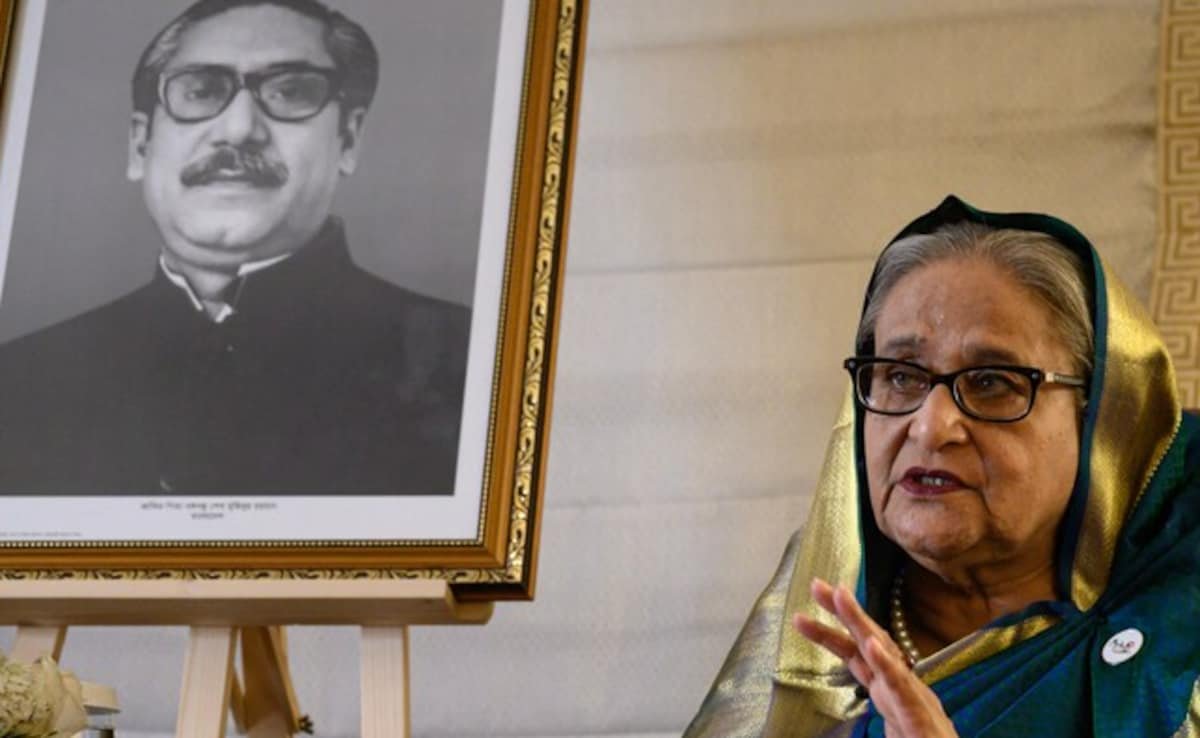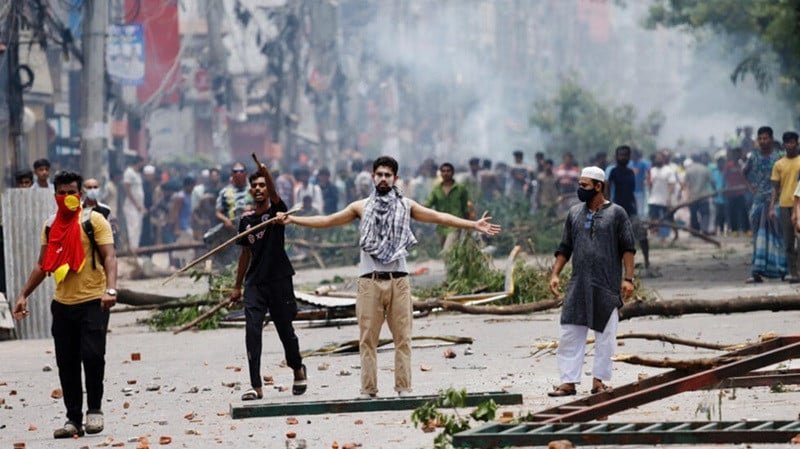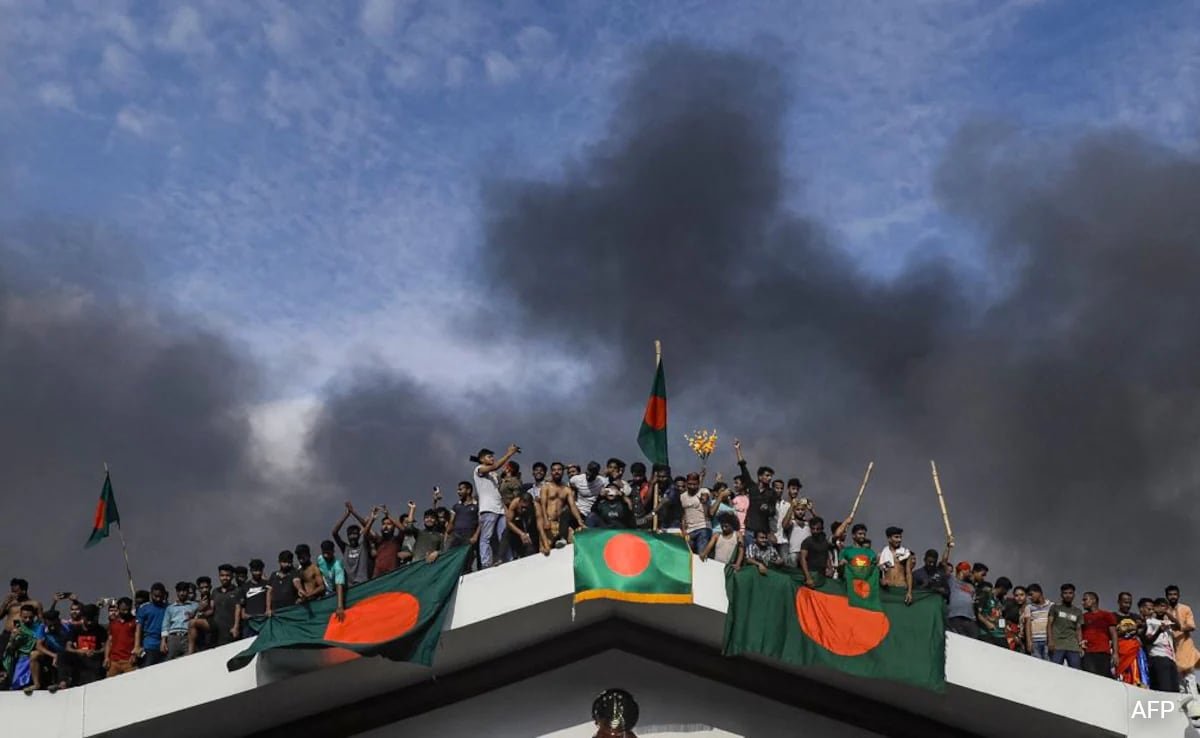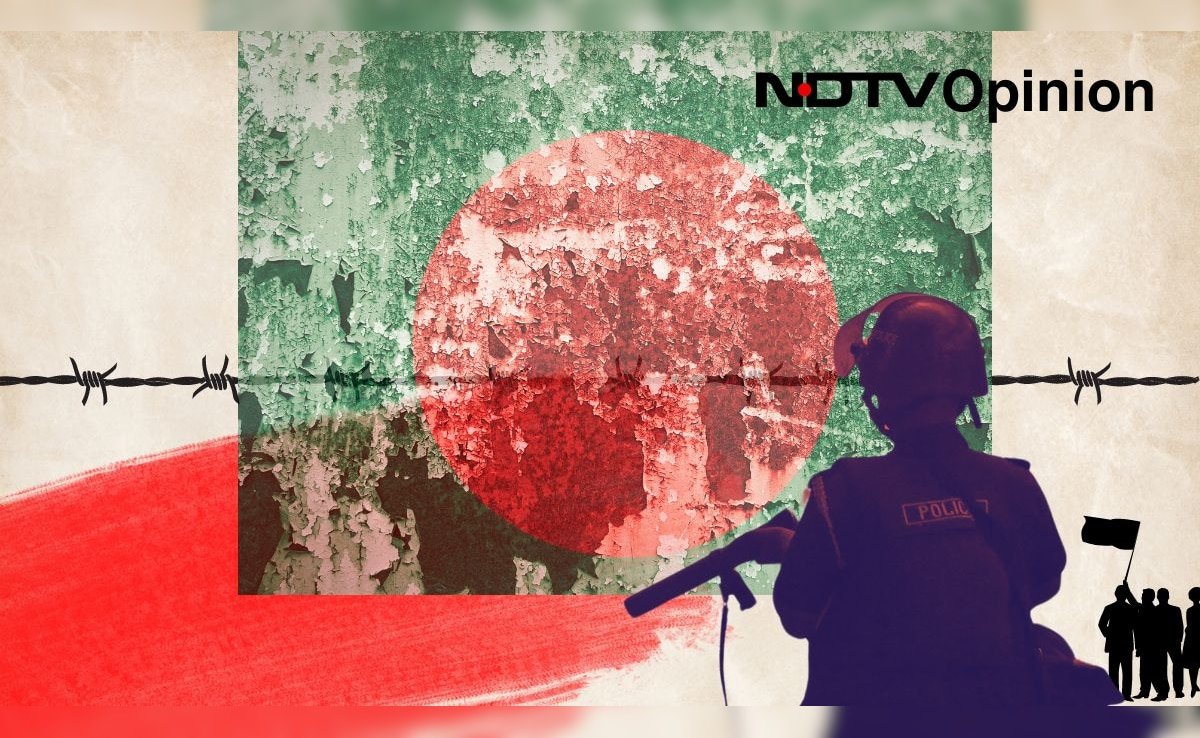
Members of Bangladesh Hindu, Buddha, Christian Unity Council protest against violence towards minorities.
New Delhi:
The Hindu community in Bangladesh spending anxious hours in the wake of resignation of Awami League leader Sheikh Hasina as Prime Minister and facing the spillovers of the violent protests over a quota-related issue in the South Asian nation on Sunday came out on streets in large numbers in the port city of Chittagong, demanding safety for their lives, properties and places of worship while proclaiming ‘Bangladesh is our motherland and we won’t go anywhere’.
There have been reports of widespread and targeted violence against the Hindus in Bangladesh, with the matter being taken note by the UN which called out the interim Bangladeshi government led by Mohammed Yunus to safeguard the minorities.
Nobel Peace Prize-winning economist Yunus, who was sworn in as the head of Bangladesh’s interim government on Thursday, has also condemned the attacks on the minority communities, terming them as “heinous”.
“Are they not the people of this country? You (students) have been able to save this country; can’t you save some families? They are my brothers… we fought together, and we will stay together,” the Nobel Prize winner told students at a Bangladeshi university recently.
On Sunday, Hindus and other minorities – under the aegis of ‘Bangladesh Hindu, Buddha, Christian Unity Group – took out a massive protest rally against the alleged attacks on Hindus in Bangladesh after Sheikh Hasina resigned in the aftermath of violent protests on August 5 and fled the country. Hindus in Bangladesh have been traditional supporters of Hasina’s Awami League party.
“Our soil, our mother is Bangladesh. We will never leave our mother,” read one of the placards seen during the protest rally.
“Save Bangladeshi Hindu Society. Save Hindus!” another appeal read.
Sunday’s protests saw the participation of people belonging to numerous minorities led by the Hindus, a prominent minority group in the country.
The protesters also waved the Bangladeshi national flag along with a saffron-colour flag depicting Lord Ram with ‘Jai Shri Ram’ written.
He also urged the students, who are at the forefront of the protests, to protect all Hindu, Christian, and Buddhist families from any harm
The protesting Hindus, in Chittagong, also questioned why their places of worship are being attacked.
“We need answers. Why is this happening to us? We want to live in peace. Let us live,” read another placard at the site of the protest rally.
“Why are our sisters and mothers being physically harassed,” another hand-written note on cardboard flashed during the ‘demand for justice rally’ read.
Since August 5, at least 232 people have reportedly died in various attacks and conflicts across Bangladesh while there have also been at least 205 incidents of attacks in 52 districts against the minorities since the fall of the Sheikh Hasina-led government.
According to media reports, over 100 Hindus and other minorities have been killed across the country since the fall of the previous government.
The Chittagong protests on Sunday witnessed overwhelming emotions with the minorities expressing their anger, anxiety and apprehensions, with the hope that authorities taking necessary steps to address their worries.
Ironically — considering the current unrest in the country — ‘AMAR SONAR BANGLA’ placard also featured during the protests. Translating to ‘My Golden Bengal’, it is the national anthem of Bangladesh written by the Nobel laureate Rabindranath Tagore who is also the composer of the Indian national anthem.
(Except for the headline, this story has not been edited by NDTV staff and is published from a syndicated feed.)



















